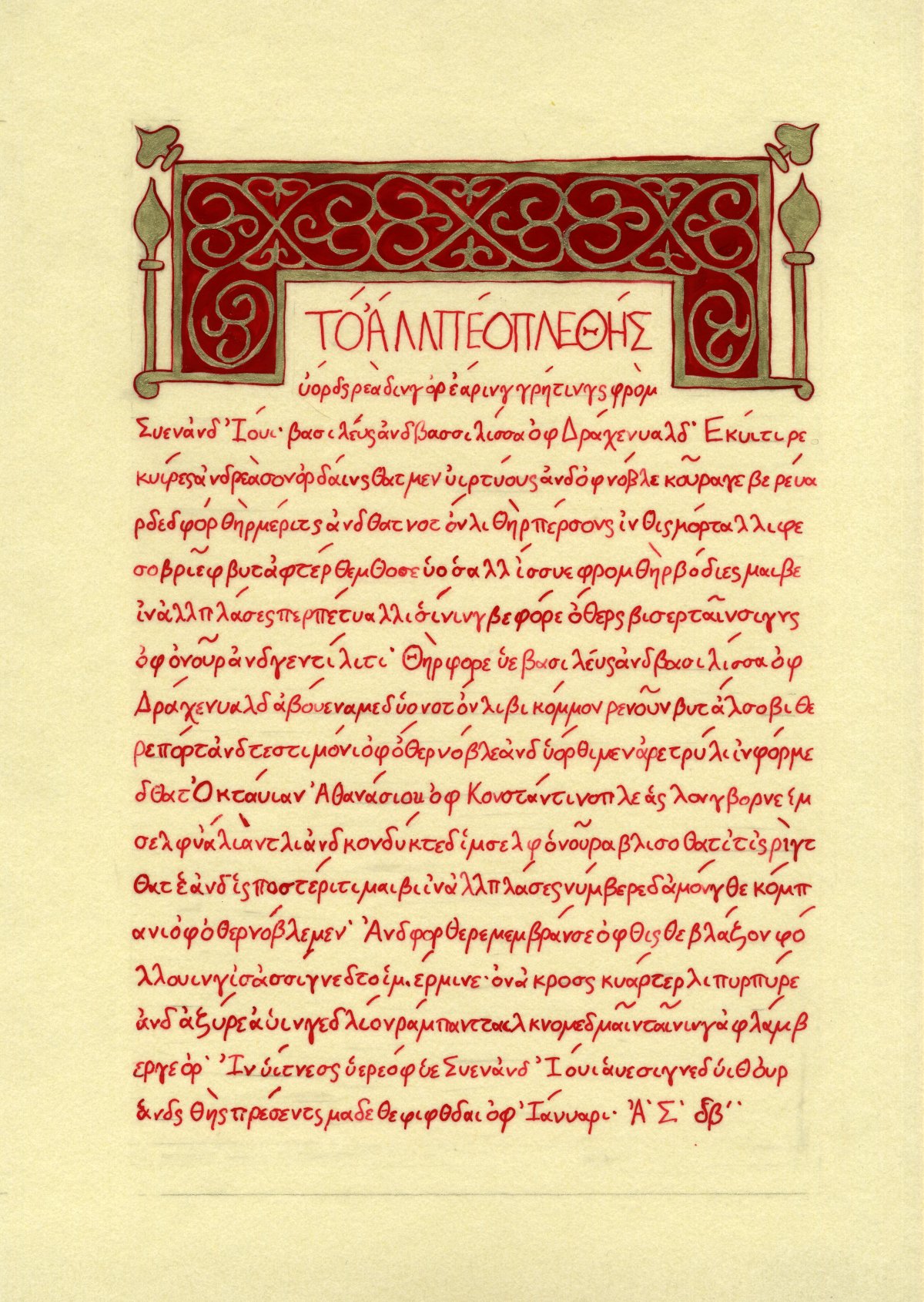The scroll is based on folio 275r of MS Hunter 475 (V.7.2) in the University of Glasgow's Special Collections; it is from southern Italy/Sicily and dates from the mid-late 12th century.
| original model |
|---|
 |
| finished scroll |
 |
Text: The text has been transliterated into the Greek alphabet. It reads:
To all people reading or hearing these words greetings from Sven and Jovi, King and Queen of Drachenwald. Equity requires and reason ordains that men virtuous and of noble courage be rewarded for their merits and that not only their persons in this mortal life so brief but after them those who shall issue from their bodies may be in all places perpetually shining before others by certain signs of honour and gentility. Therefore we king and queen of Drachenwald abovenamed who not only by common renown but also by the report and testimony of other noble and worthy men are truly informed that Octavian Athanasiou of Constantinople has long borne himself valiantly and conducted himself honourably so that it is right that he and his posterity may be in all places numbered among the company of other noble men. And for the remembrance of this the blazon following assigned to him: ermine, on a cross quarterly purpure and azure a winged lion rampant tailed nowed maintaining a flamberge or. In witness whereof we Sven and Jovi have signed with our hands these presents made the fifth day of January, a.s. forty two.
The text has been transliterated (not translated) into Greek. Because it wasn't a translation, I had to fudge some of the letters -- 'w' and 'v' are represented by upsilon; when they occur initially, I gave the 'w' a rough breathing to indicate that it was a w. I use eta for 'ei' and the long e sound, because otherwise I wouldn't have had a reason to use it, and eta is a cool letter. For the accents, I made up my own system of accenting: monosyllabic words have no accent. Polysyllabic words got an acute accent on the syllable that gets the primary stress in English, except when that syllable had a diphthong with a falling tone (i.e., the ei in 'their'), in which case I gave it a grave accent. Other dipthongs (ie and ou) got circumflexes.
The punctuation system is that used by Aristophanes of Byzantium, who became librarian at Alexandria around 200 BC, according to "Punctuation in Greek and Latin to 1600". Since 'fifth' would've been spelled out as a word in English, I merely transliterated that, but for the year the award was given, I used the Greek system of numerals.
Paints: Talens gouache, gold and carmine.
Ink: Ecoline carmine.
The scroll was done on Jan. 24 and 25.
© 2009, Sara L. Uckelman.

